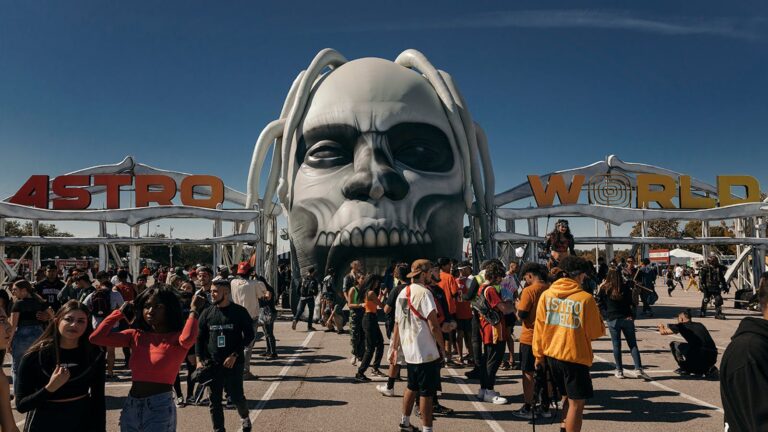Travis Scott’s 2018 album Astroworld transcended the usual boundaries of hip-hop, becoming a cultural phenomenon that stirred both critical acclaim and intense fan enthusiasm. Astroworld wasn’t just a musical project; it was an experience, merging Scott’s Texas roots, a fantastical amusement park, and a psychedelic journey into his own mind. Inspired by the now-defunct Six Flags Astroworld amusement park in Houston, Texas, the album’s theme brings together childhood nostalgia, surrealism, and a sense of escapism—qualities that are echoed in its immersive cover art. Created by esteemed photographer David LaChapelle, the album’s cover art draws audiences into a vivid, carnival-like world.
The Astroworld cover art reflects more than Scott’s personal nostalgia; it serves as a portal into his artistic vision, capturing the album’s distinct soundscape that blends trap beats with melodies that feel both futuristic and rooted in tradition. The cover itself features a massive golden inflatable of Scott’s head as the entrance to a surreal theme park, capturing whimsical yet eerie vibes that resonate with the album’s tracks. The artwork is filled with vibrant colors, carnival rides, and an eclectic mix of characters—kids, parents, performers—that serve as a bridge between fantasy and reality. Beyond its visual appeal, the Astroworld album cover incorporates references from various sources, including films, art movements, and Scott’s previous work. This approach reflects the album’s multifaceted theme, connecting nostalgia, surrealism, and cultural references to create a memorable image.
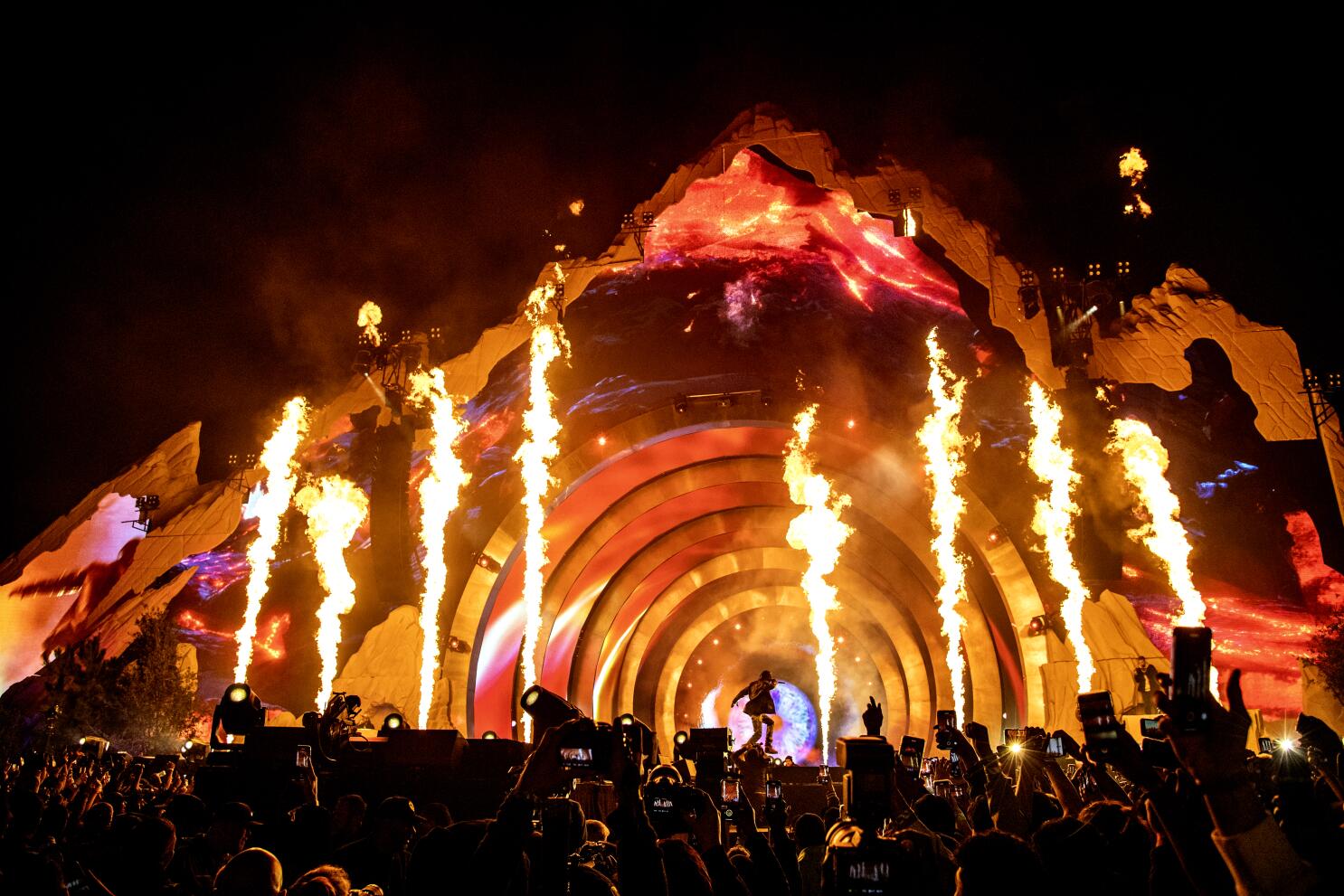
1. The Giant Golden Inflatable Head
The massive golden inflatable head of Travis Scott that serves as the gateway to Astroworld is a powerful image, echoing monumental sculptures and pop art installations. Influences can be traced to Jeff Koons and Takashi Murakami, both known for oversized, bold sculptures that command attention. Scott’s inflatable head mirrors Koons’s metallic balloon animals, embodying a larger-than-life, playful aesthetic while also suggesting a certain surrealism that’s typical in pop culture and modern art.
2. Six Flags Astroworld in Houston, Texas
The inspiration for the entire album, Six Flags Astroworld, was a beloved amusement park in Houston that closed in 2005. This park was a symbol of joy for many locals, including Scott himself. The cover art encapsulates a sense of longing for this lost space, preserving it in a dreamlike form that speaks to both nostalgia and the theme of a forgotten paradise.
3. Surrealist Art Movement
The dreamlike atmosphere of the Astroworld cover art draws heavily from the surrealist art movement of the 20th century, specifically the works of Salvador Dalí and René Magritte. The strange combination of real-life characters in a fantasy environment taps into surrealist themes, where dreams blend with reality, creating a distorted yet captivating scene.
4. 90s Hip-Hop Album Covers
Scott’s Astroworld album cover nods to 90s hip-hop album covers that featured elaborate, attention-grabbing visuals. Albums, like Wu-Tang Clan’s Enter the Wu-Tang (36 Chambers) and Dr. Dre’s The Chronic, used bold imagery that captured a unique essence. This cover channels that spirit, modernizing it for today’s audience while staying true to hip-hop’s iconic visual roots.
5. Vintage Carnival Posters
The carnival theme in the artwork recalls vintage carnival posters, with their bold, colorful visuals and slightly eerie undertones. These posters often featured exaggerated, almost grotesque portrayals of carnival attractions, which adds a nostalgic yet haunting feel to the Astroworld cover.
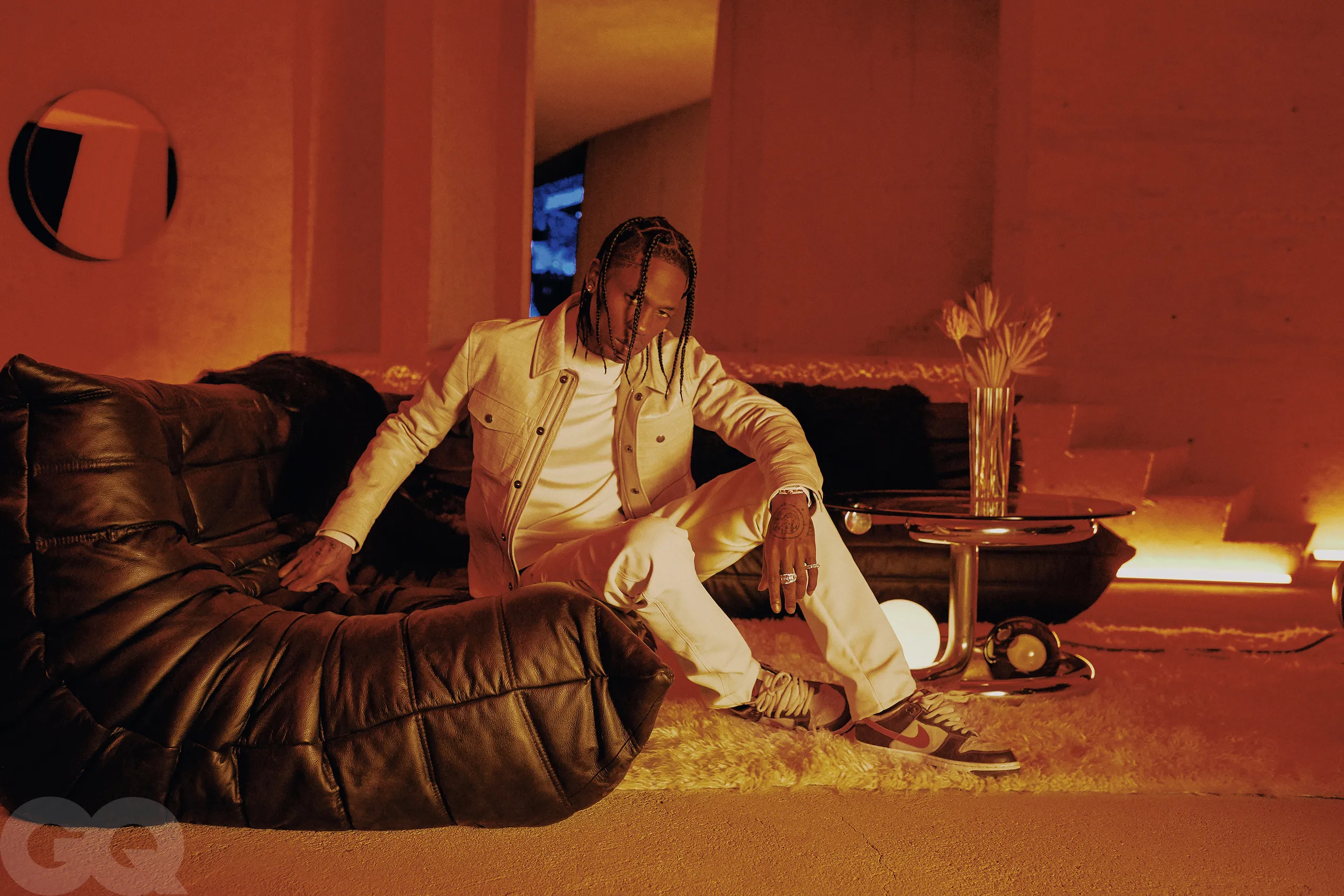
6. Takashi Murakami’s “Superflat” Style
Murakami’s work, which Scott has cited as an influence, blends high and low culture in a flattened, cartoonish style. The “Superflat” technique is mirrored in Astroworld‘s cover, particularly in the way that fantastical elements are mixed with real-life ones, creating a world where depth and perspective feel fluid.
7. Stanley Kubrick’s The Shining
The eerie carnival setting on the album cover echoes the unsettling atmospheres created by Stanley Kubrick, particularly in The Shining. The visual storytelling uses children and adults in a bizarre, somewhat ominous environment, akin to Kubrick’s approach of using innocence and horror side by side.
8. Disneyland and Theme Parks
Disneyland’s iconic entrance inspired the layout of the Astroworld cover. Scott’s golden head functions as a gateway, much like Disneyland’s welcoming castle. This inspiration underscores the idea of Astroworld as an escape from reality into a magical, alternate universe.
9. Jeff Koons’ Balloon Dog
Koons’s “Balloon Dog” sculptures capture a sense of whimsy and scale that is echoed in the golden head on the album cover. This piece of pop art uses simple, recognizable forms to convey larger themes of childhood, play, and wonder, all of which are present in Astroworld’s aesthetic.
10. Salvador Dalí’s The Elephants
Dalí’s surrealist painting The Elephants, with its elongated, dreamlike figures, inspired the surreal tones in Astroworld. The distorted yet majestic elements in the artwork channel a similar surreal, haunting beauty. The tall, exaggerated carnival structures mimic Dalí’s creatures, adding a slightly unsettling allure to the cover.
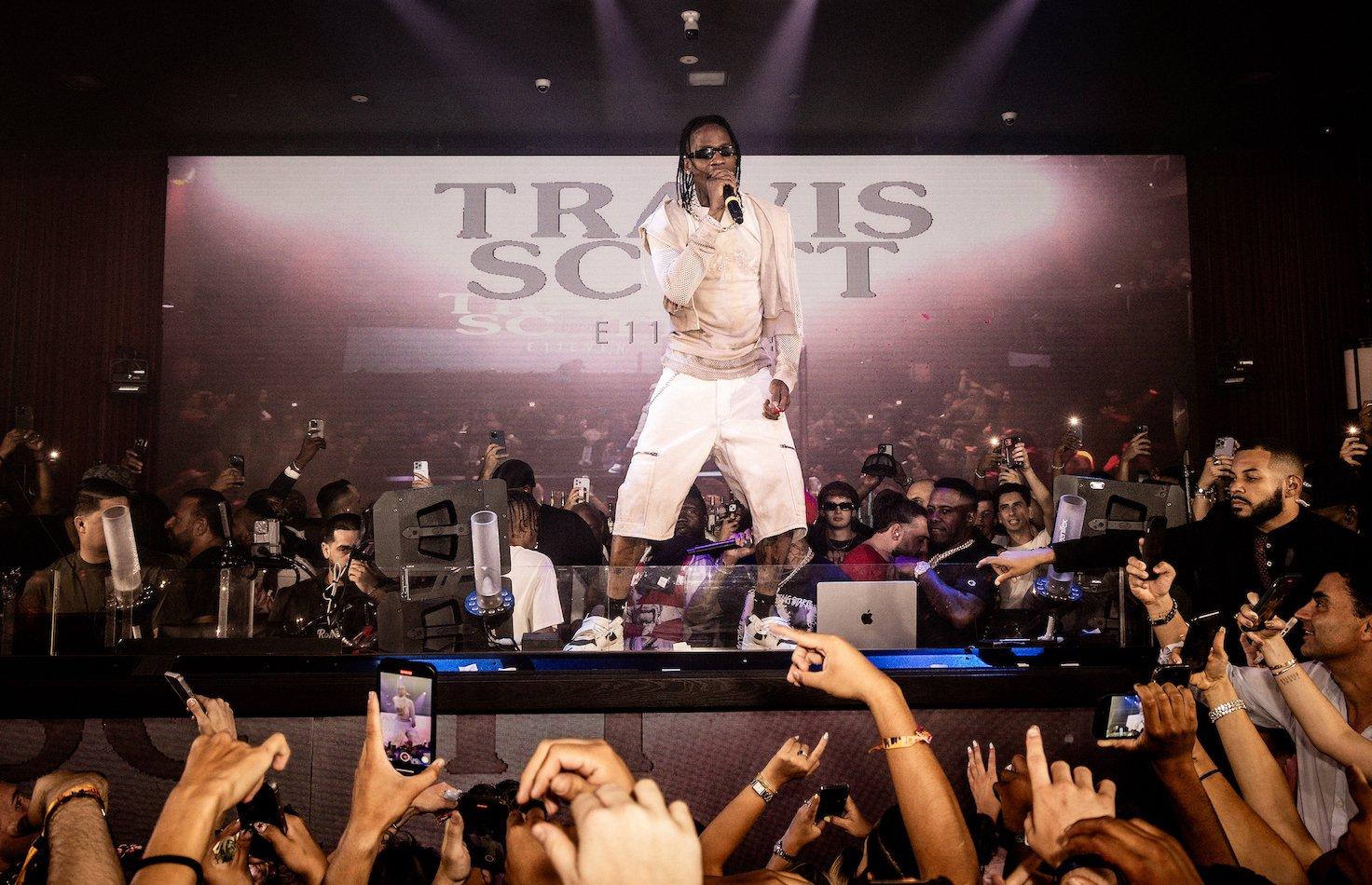
11. David LaChapelle’s Surreal Photography
The Astroworld cover art was created by David LaChapelle, known for his surreal, hyper-saturated photography that often merges fantasy with pop culture. His signature style is marked by dreamlike settings, bold color schemes, and a larger-than-life quality that perfectly aligns with Scott’s artistic vision.
12. Tim Burton’s Big Fish
Tim Burton’s Big Fish brings to life a whimsical, almost exaggerated world that merges the real with the fantastical. Elements like towering carnival attractions and unusual characters in Astroworld echo Burton’s visual storytelling, especially in how the film portrayed a journey of self-discovery and nostalgia.
13. 80s Arcade Games
The vibrant color palette and playful carnival vibes on the Astroworld cover pay homage to the neon-soaked aesthetics of 80s arcade games. Titles like Pac-Man and Space Invaders used bright, captivating visuals that drew players into immersive worlds, much like the cover does.
14. Coney Island Amusement Park
Coney Island, with its vintage carnival feel and classic rides, likely inspired the album’s carnival theme. Known for its unique mix of excitement and nostalgia, Coney Island embodies the escapism that Astroworld seeks to evoke.
15. Stephen King’s It
Stephen King’s It, especially the creepy carnival and abandoned amusement park scenes, parallels the eerie, fantastical environment in Astroworld. The contrast between innocence (a place designed for fun) and fear underpins both the novel and the cover art.
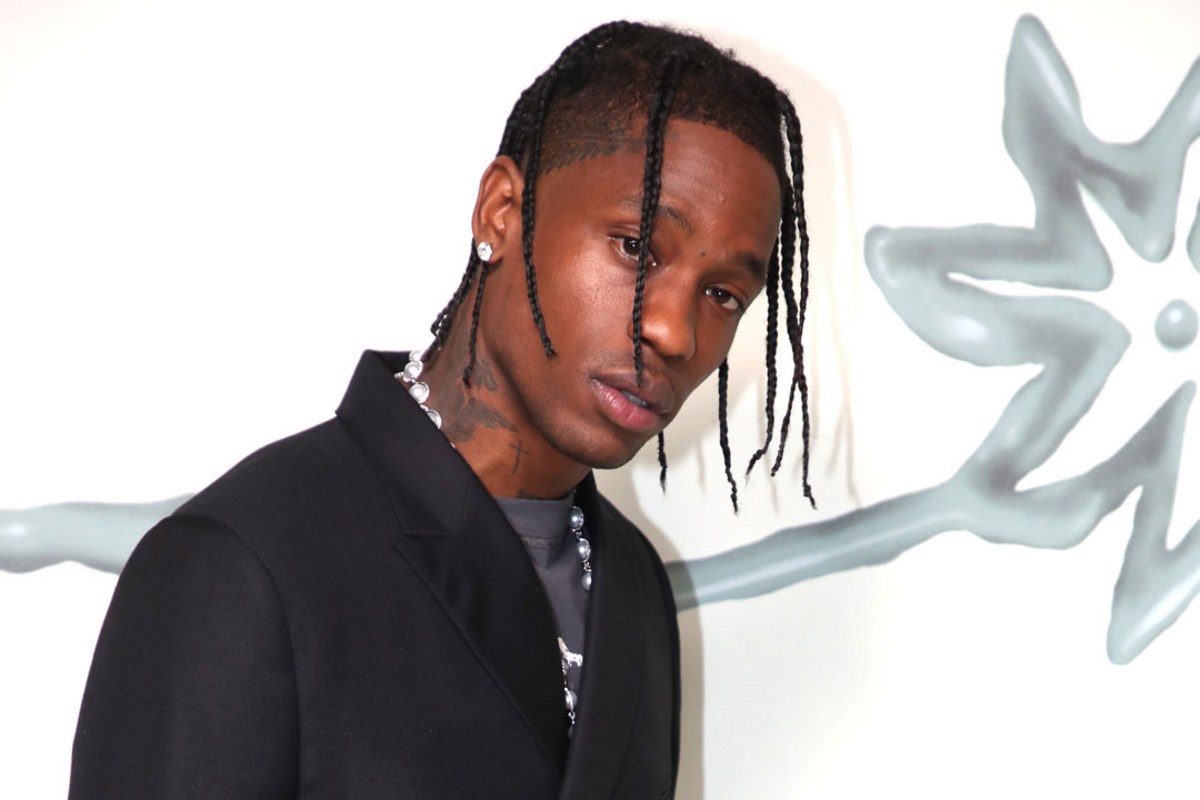
16. Pop Surrealism Movement
Pop surrealism, a movement blending high art with pop culture elements, is apparent in Astroworld’s cover. Artists like Mark Ryden, who create surreal, dreamlike scenes infused with pop culture symbols, influence the blending of ordinary and extraordinary elements in Scott’s artwork.
17. Ancient Egyptian Statues
The massive golden head at the center of Astroworld resembles ancient Egyptian statues, such as the Great Sphinx. This reference brings an air of mystery and permanence, connecting Scott’s persona to figures of cultural reverence and mythological stature.
18. Jim Henson’s Labyrinth
The maze-like quality of the Astroworld cover art and its cast of unique characters parallel Jim Henson’s Labyrinth. The strange, whimsical creatures and enchanting yet dark setting in the film find echoes in the cover’s carnival world.
19. The Texas State Fair
The Texas State Fair, with its towering Ferris wheels, bright colors, and eclectic attractions, served as a key influence. Travis Scott’s Texas roots make the state fair a fitting homage, connecting personal nostalgia with the carnival theme.
20. Hieronymus Bosch’s The Garden of Earthly Delights
Bosch’s The Garden of Earthly Delights features fantastical and surreal scenes, blending pleasure with chaos, much like the atmosphere in Astroworld. The painting’s bustling scenes filled with strange creatures parallel the chaotic carnival environment on the cover.
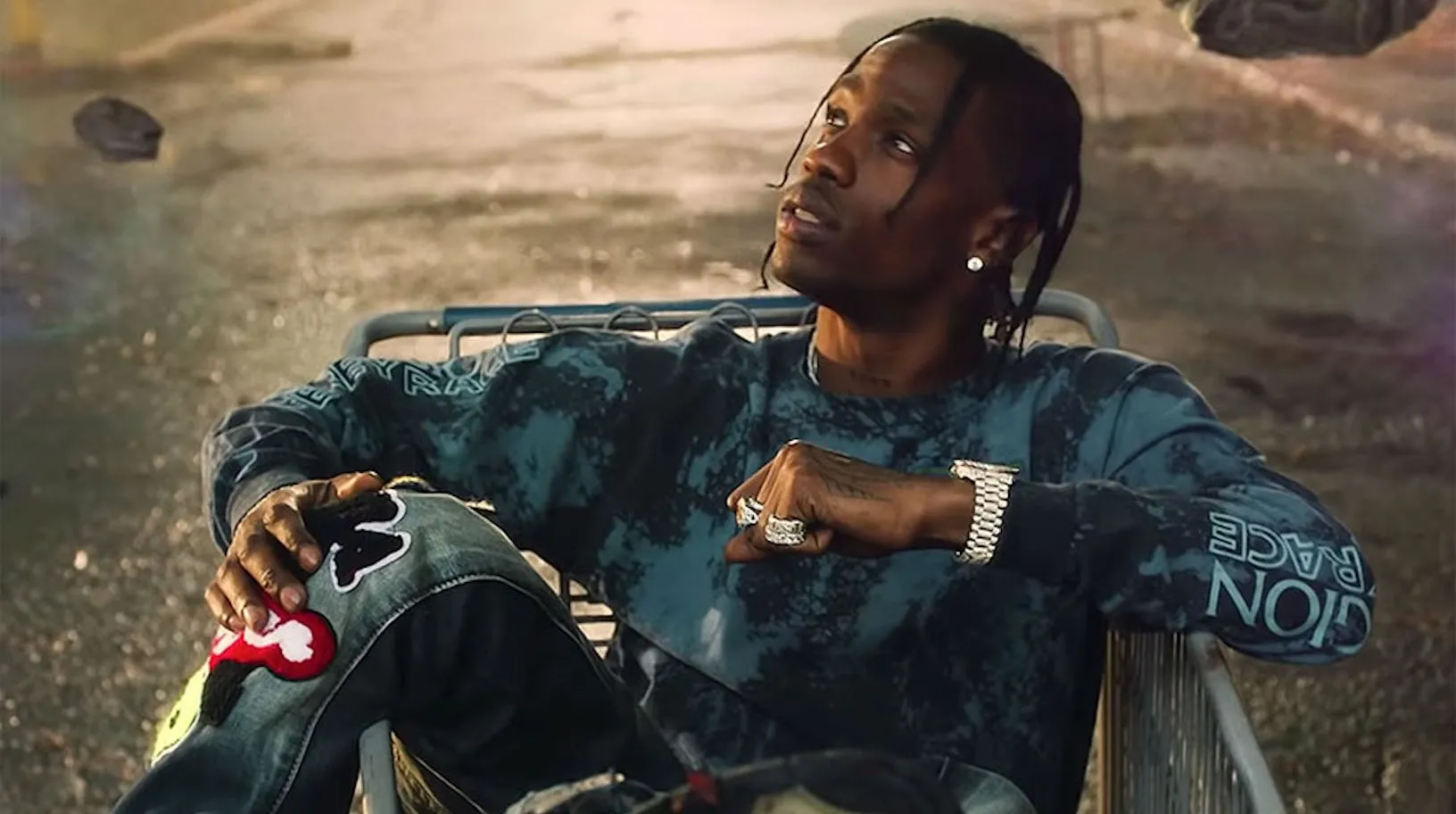
21. Alice in Wonderland
The surreal, slightly dark wonderland of Alice’s world influences Astroworld’s cover, especially in its portrayal of an entrance to a magical, twisted place. The idea of entering a strange world parallels Alice’s journey down the rabbit hole.
22. Stranger Things’ 80s Aesthetic
The popular show Stranger Things captures a nostalgic 80s aesthetic, including bright neon lights and carnival-like horror elements that are reflected in Astroworld. Both feature mysterious yet nostalgic atmospheres, blending youthful excitement with a darker edge.
23. Takashi Murakami’s “Flowers” Iconography
Takashi Murakami’s iconic, colorful “Flowers” represent playful yet slightly unsettling symbols of pop culture. The vibrant colors and childlike imagery of Murakami’s work seem to inspire the cover’s blend of innocence and darkness.
24. 60s Psychedelic Concert Posters
The psychedelic concert posters of the 60s used bold typography, bright colors, and surreal designs to attract attention. Astroworld reflects this influence through its eye-catching visuals that draw the viewer into a different state of mind.
25. Universal Studios Hollywood
Universal Studios, known for its immersive sets and thrilling rides, echoes in the Astroworld cover art, particularly in the way it draws fans into a fully realized world. The entrance design, grandiose structures, and larger-than-life atmosphere are reflected in Scott’s visual playground.
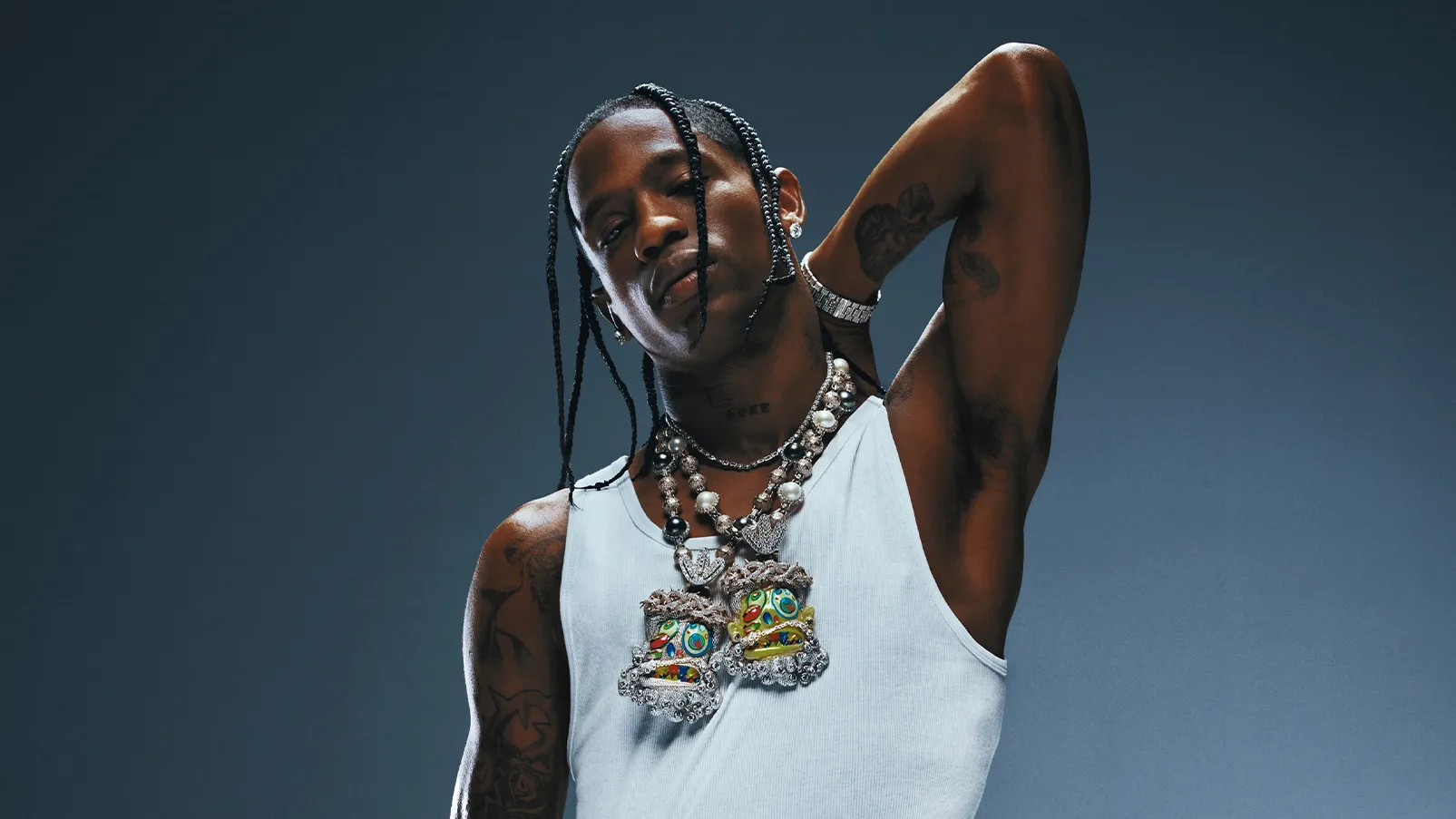
26. Vintage Horror Movie Posters
The slightly ominous undertones on the cover parallel vintage horror movie posters, which often used surreal colors and eerie imagery to draw viewers in. This influence brings a sense of mystery to the cover, adding layers to its carnival-like atmosphere.
27. Charlie and the Chocolate Factory
The whimsical, bizarre factory of Willy Wonka bears a strong resemblance to the Astroworld cover. Both settings present an enticing, magical world but hold an underlying sense of danger and unpredictability, similar to Wonka’s fantastical factory.
28. The Great Wall of China
The concept of a larger-than-life entrance is inspired by monumental architecture like the Great Wall. Much like the Great Wall’s purpose of marking an entrance into a new world, the golden head at Astroworld’s entrance symbolizes a crossing into the extraordinary.
29. Dr. Seuss’s Whimsical Worlds
The playful, colorful worlds of Dr. Seuss influenced the imaginative and slightly surreal carnival scene in Astroworld. Seuss’s characters and landscapes often mix vibrant hues with unusual shapes, mirroring the eclectic mix of characters on the cover.
30. 50s Science Fiction Covers
The Astroworld cover reflects the colorful, exaggerated visuals of 50s sci-fi book covers. These covers often presented strange, inviting worlds filled with bizarre creatures and exaggerated colors, much like the Astroworld setting.
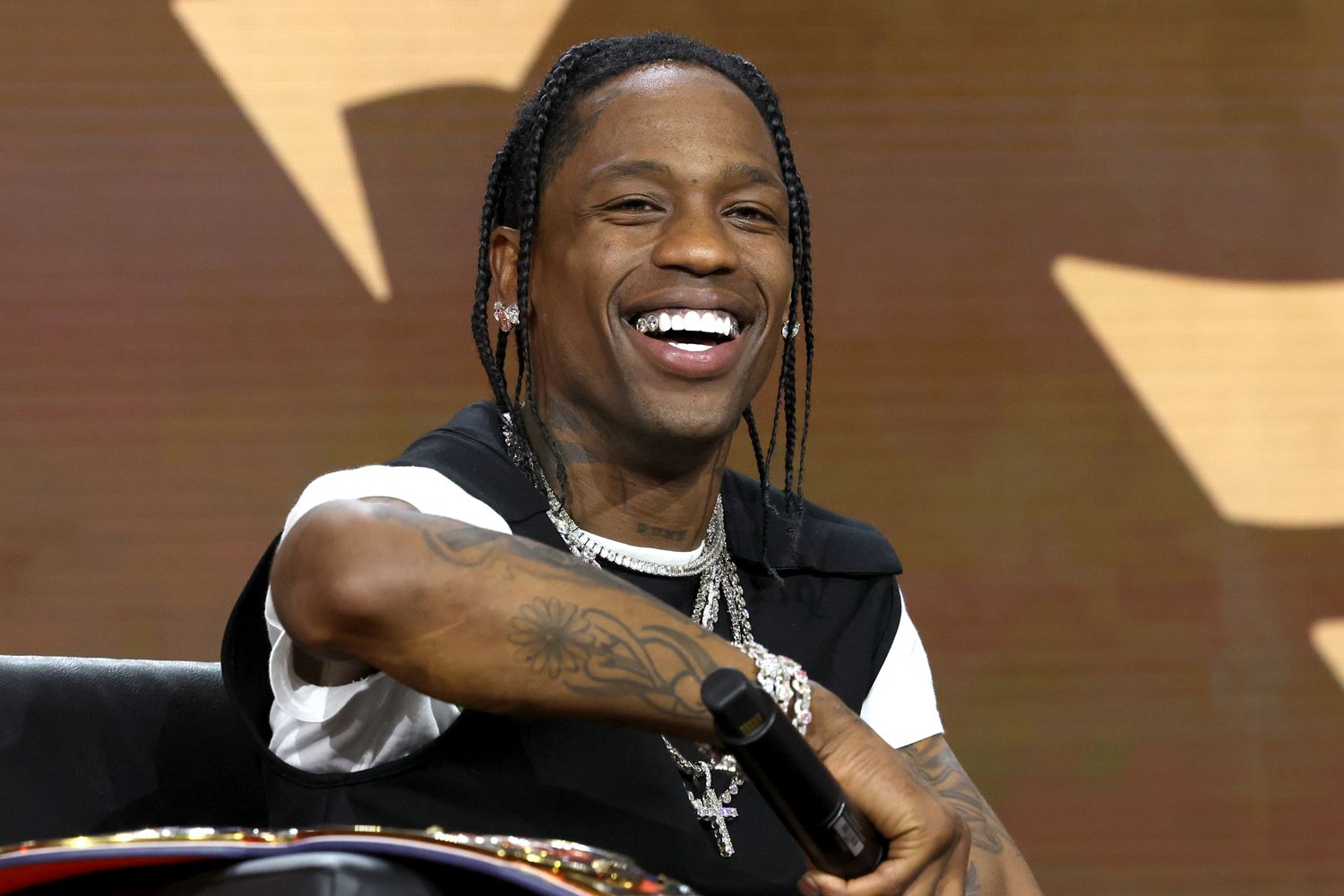
31. Blade Runner’s Neon Landscape
The neon-lit landscapes in Blade Runner are reflected in Astroworld’s vibrant, dreamlike color palette. The film’s futuristic yet slightly dystopian visuals resonate with the surreal, immersive setting Scott has created.
32. The Gothic Cathedral Style
Gothic architecture, known for its tall, grand designs and stained glass, influences the towering structures in Astroworld. The carnival rides and decorations have an almost cathedral-like presence, symbolizing a surreal, worship-like experience.
33. The Wizard of Oz
The magical, yet sometimes dark, journey of Dorothy in The Wizard of Oz parallels the strange, inviting entrance of Astroworld. The story’s blend of whimsy and unsettling elements resonates with the surreal tones of Scott’s carnival world.
34. Roman Colosseum
The grand, monumental scale of the Roman Colosseum inspires the cover’s entrance design. Just as the Colosseum was a gateway to ancient entertainment, the golden inflatable head serves as a dramatic entrance to the surreal experience of Astroworld.
35. Classic Circus Aesthetics
The classic circus aesthetic—with colorful tents, clowns, and ringmasters—is echoed in Astroworld’s cover. This influence brings a timeless, yet slightly eerie, charm to the carnival environment Scott has crafted.
36. Roller Coaster Design
The roller coasters in Astroworld represent thrilling, larger-than-life experiences reminiscent of amusement parks and carnivals. The design likely draws from classic roller coasters like Coney Island’s Cyclone, symbolizing both excitement and the potential danger of the ride.
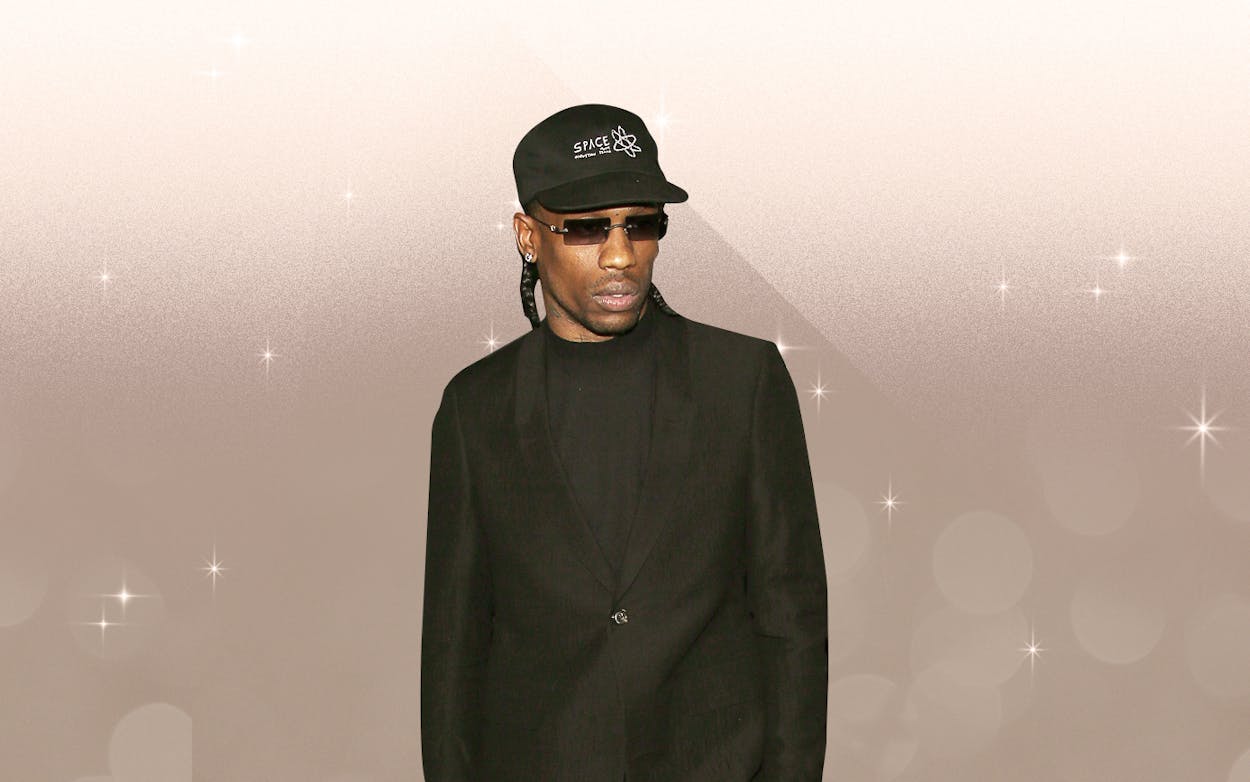
37. René Magritte’s The Son of Man
This famous surrealist painting by René Magritte, with its mysterious subjects and obscured faces, inspires Astroworld’s surreal vibe. The ordinary juxtaposed with the bizarre reflects a world where reality and fantasy blend seamlessly.
38. The Louvre Pyramid
The iconic glass pyramid at the Louvre in Paris resembles the architectural grandeur and bold entrance in Astroworld. Like the pyramid, Scott’s cover art symbolizes entering a place of wonder and fascination, a gateway to the unusual.
39. Fear and Loathing in Las Vegas
The psychedelic visual style of Fear and Loathing in Las Vegas, with its trippy scenes and surreal landscapes, aligns with the dreamlike quality of Astroworld. This influence is reflected in the slightly chaotic, colorful carnival atmosphere.
40. Big Tex at the Texas State Fair
The Texas State Fair’s “Big Tex” mascot, a towering figure at the entrance, is echoed in Scott’s giant head on the album cover. This nod to Texas culture and the scale of “Big Tex” brings a sense of local pride and monumental presence.
41. Michelangelo’s David
Michelangelo’s statue of David represents a sense of grandeur and iconic presence, akin to the giant Travis Scott head on the Astroworld cover. Both monumental figures symbolize timelessness and command attention, serving as landmarks for those who enter.
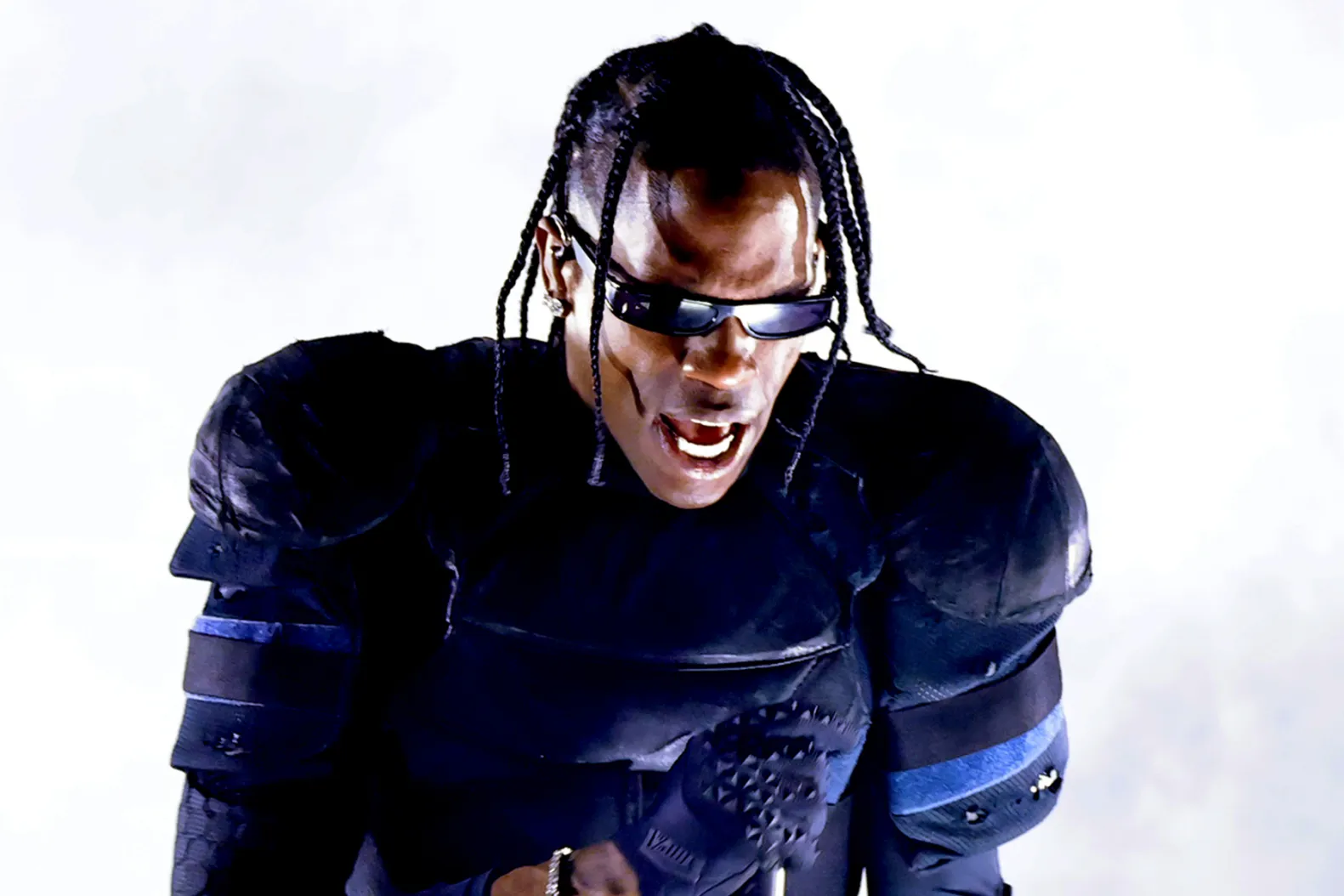
42. Westworld TV Series
The theme park setting in the Westworld TV series, where technology, fantasy, and reality intersect, resembles the immersive world in Astroworld. The cover evokes a similar blend of thrill, wonder, and underlying tension.
43. Carnival Sideshow Posters
Vintage carnival sideshow posters advertised bizarre and fantastical attractions, a theme seen in the cover art with its eclectic mix of characters and carnival rides. The slightly unsettling appeal of sideshows resonates with Astroworld’s mysterious vibe.
44. Picasso’s Surrealist Phase
Pablo Picasso’s surrealist works, characterized by abstract and exaggerated forms, influence the strange, twisted visuals of Astroworld. The colorful, surreal setting reflects Picasso’s exploration of distorted perspectives.
45. The Taj Mahal
The grand entrance of the Taj Mahal inspired the sense of symmetry and wonder seen in the Astroworld cover. Much like the Taj Mahal draws visitors with its beauty and scale, Astroworld’s entrance captures that awe-inspiring effect.
46. Salvador Dalí’s The Persistence of Memory
The melting clocks and distorted landscapes in Dalí’s famous painting inspire the surreal, slightly disjointed feel of Astroworld. The carnival’s distorted reality and playful imagery echo Dalí’s explorations of time and space.
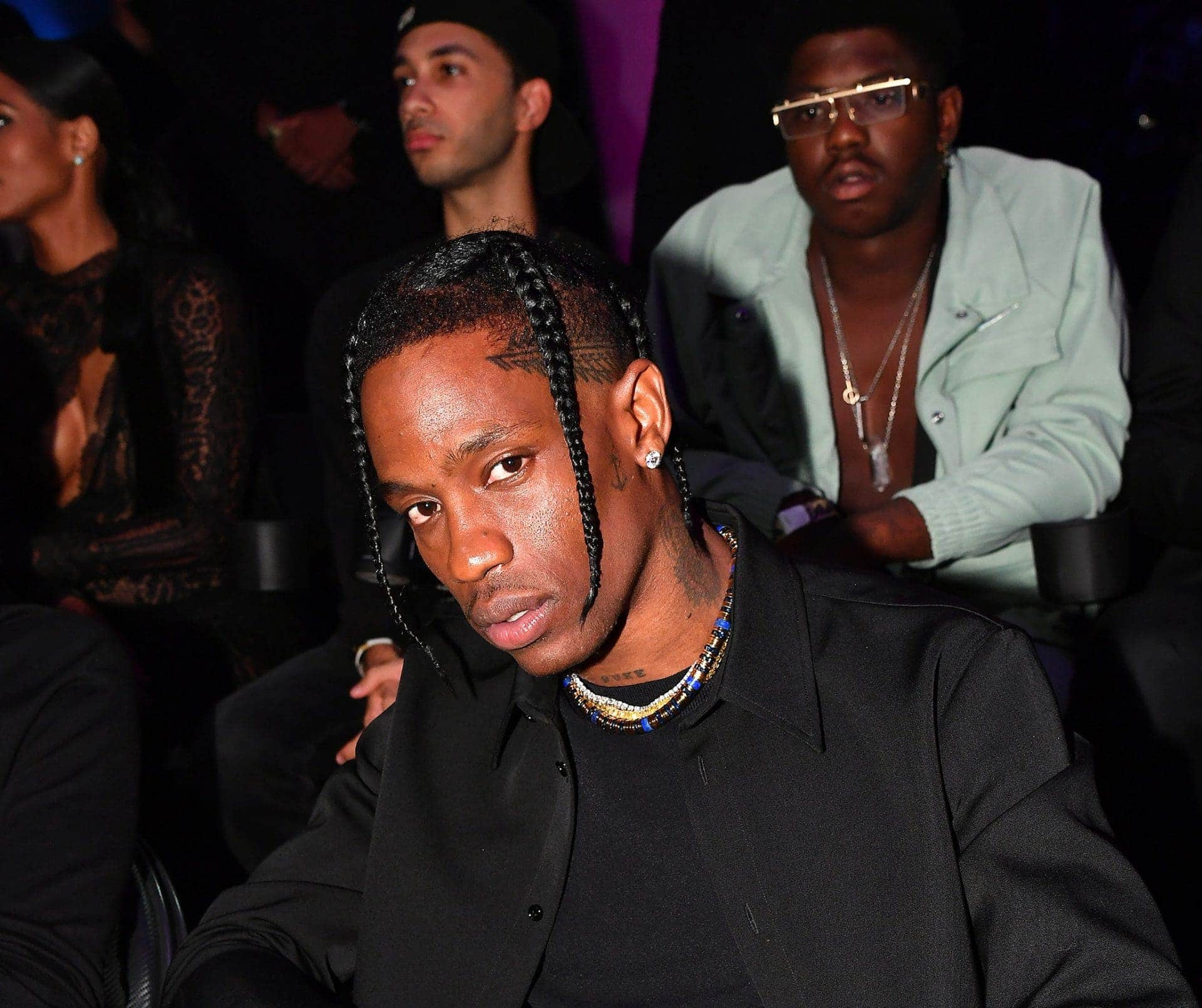
47. The Red Light District
The red and neon-lit aesthetic of the Red Light District serves as a visual influence, adding a surreal, vibrant, and slightly risqué vibe to the Astroworld cover art. The intense colors and crowded setting evoke the sensory overload of a lively city at night.
48. Tim Burton’s Nightmare Before Christmas
The quirky yet slightly dark atmosphere of Nightmare Before Christmas is mirrored in Astroworld’s carnival. The exaggerated structures and strange characters add a Burtonesque charm to Scott’s surreal amusement park.
49. Buddhist Temple Gateways
The elaborate gateways of Buddhist temples, designed to separate the ordinary world from a spiritual realm, parallel the golden entrance to Astroworld. This gateway to a sacred or surreal experience resonates with the transformative feel of the album’s themes.
50. The Space Needle in Seattle
The iconic height and futuristic architecture of Seattle’s Space Needle influence the towering structures in Astroworld. The elevated perspective adds an otherworldly, panoramic effect that invites exploration.
51. Sci-Fi Movie Sets from the 1970s
The sci-fi sets of 70s films like Star Wars and Logan’s Run brought immersive, futuristic worlds to life, which is echoed in Astroworld’s cover. The imaginative visuals suggest a carnival set in a universe beyond our own.
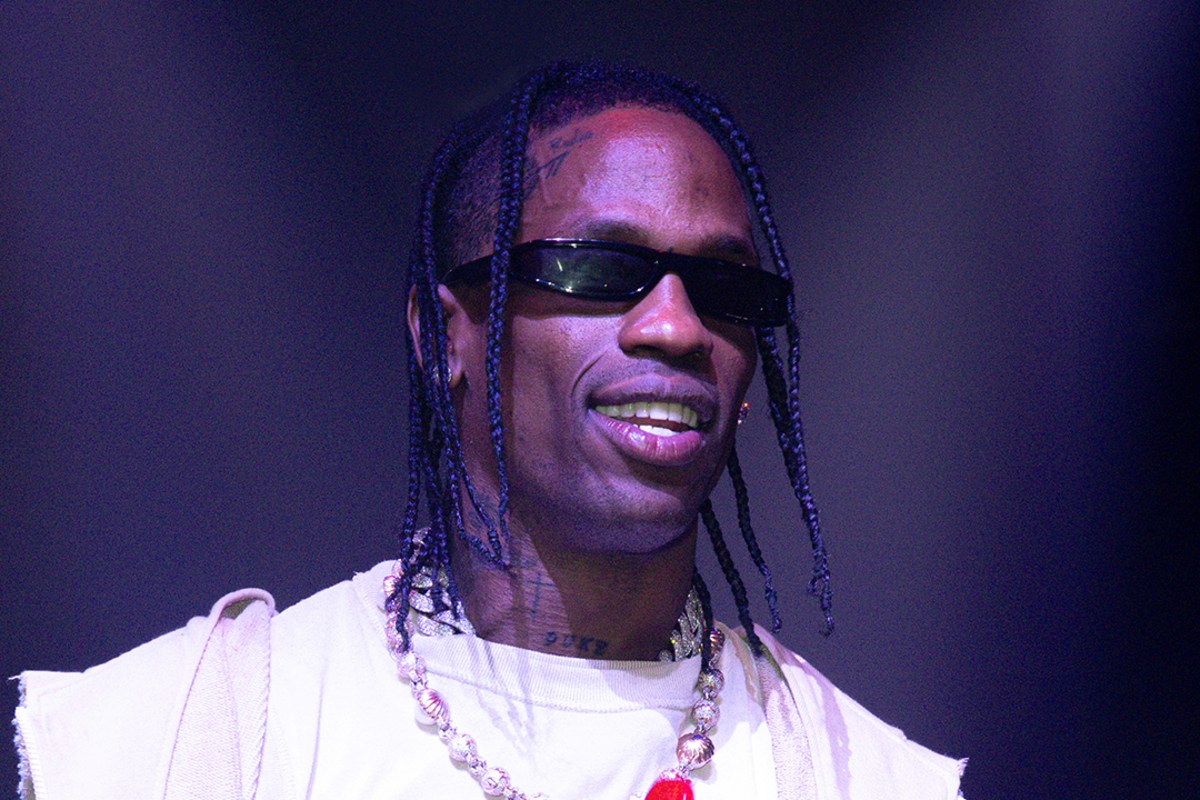
52. 1920s Circus Ads
1920s circus ads, with their grandiose, colorful graphics, inspire the vibrant hues and bold design of Astroworld. These vintage ads captured the excitement of the carnival, infusing an old-time charm into Scott’s modern fantasy world.
53. M. C. Escher’s Optical Illusions
Escher’s optical illusions, known for their mind-bending perspectives, are mirrored in the surreal, dreamlike elements on the Astroworld cover. This influence contributes to a sense of warped reality where perspectives twist and overlap.
54. Japanese Anime Aesthetics
Japanese anime, with its vibrant colors and hyper-detailed landscapes, inspires the colorful, cartoonish elements in Astroworld. Shows like Neon Genesis Evangelion and Spirited Away incorporate surreal landscapes that parallel Scott’s visual style.
55. Yellow Submarine by The Beatles
The animated film Yellow Submarine captures a psychedelic, colorful world, which resonates with Astroworld’s vibrant carnival. The album cover’s whimsy and surrealism draw from the film’s style, creating a musical adventure in visual form.
56. Frank Gehry’s Deconstructivist Architecture
Frank Gehry’s unconventional, fluid architectural designs influence the fantastical structures in Astroworld. His style of twisted, surreal forms resonates with the slightly chaotic, sculptural layout of the carnival.
57. The Moulin Rouge in Paris
The iconic cabaret Moulin Rouge and its red, vibrant design influence the theatrical and exaggerated elements in Astroworld. The cover’s carnival suggests a similar sense of playfulness mixed with a mysterious allure.
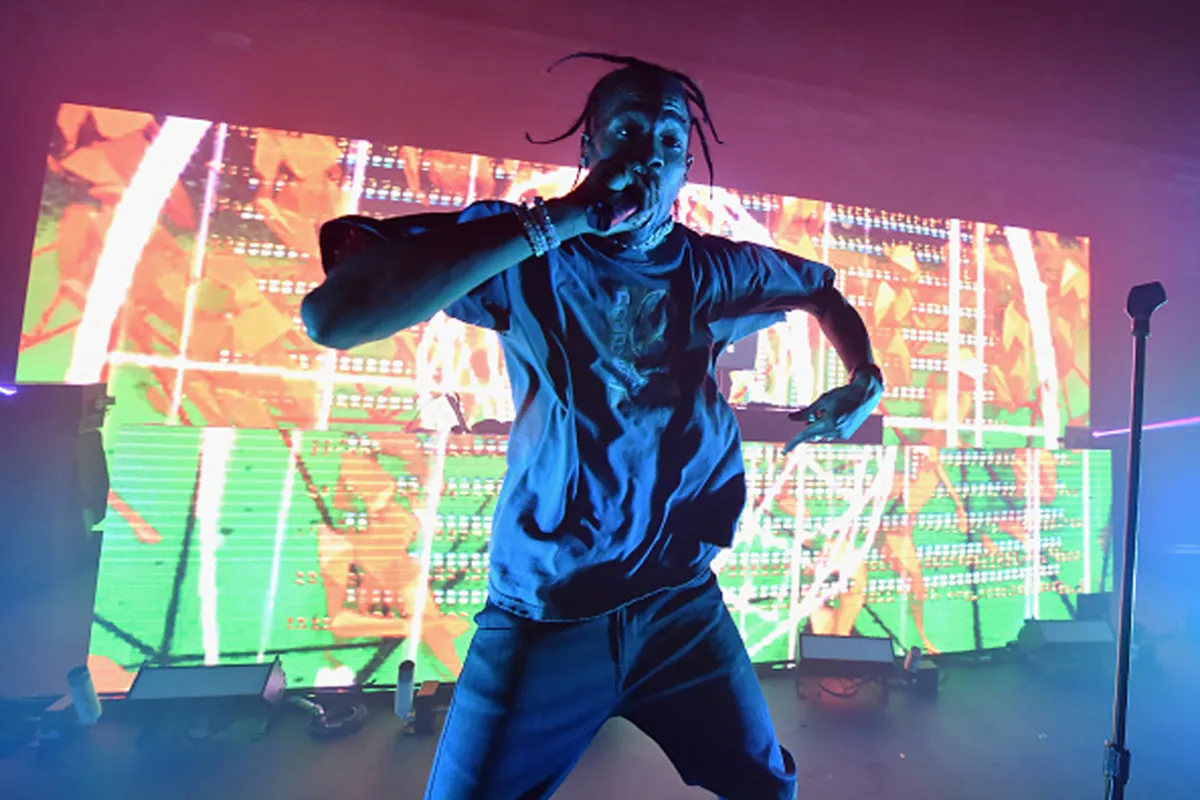
58. Terry Gilliam’s Brazil
The surreal, dystopian landscapes in Brazil parallel the crowded, immersive aesthetic of Astroworld. The album cover channels a chaotic yet strangely cohesive vision, capturing a carnival that feels both familiar and outlandish.
59. Hong Kong’s Neon Streets
The neon-filled streets of Hong Kong inspire the bright, electric color scheme of Astroworld. The bustling lights and colors create a visually captivating environment that immerses fans in Scott’s surreal carnival world.
60. Roman Triumphal Arches
The Roman arches, grand entrances symbolizing victory, are echoed in the monumental entrance on Astroworld. These arches served as entryways to important areas, much like the golden head is a gateway to Scott’s dreamlike world.
61. Tim Walker’s Fashion Photography
Fashion photographer Tim Walker’s fantastical, dreamlike sets influence the color scheme and surreal atmosphere of Astroworld. Walker’s use of unusual characters and outlandish settings parallels the cover’s carnival characters.
62. Neo Tokyo from Akira
The sprawling, neon city of Neo Tokyo in Akira reflects the intense, colorful atmosphere on Astroworld. The cover’s carnival lights and vibrant visuals draw from the movie’s vision of a futuristic yet dystopian urban landscape.
63. Street Art Murals
The energetic style of street art, especially mural work that uses bold colors and surreal imagery, parallels Astroworld’s visual approach. The cover’s eclectic style reflects the colorful, dynamic essence of urban murals.
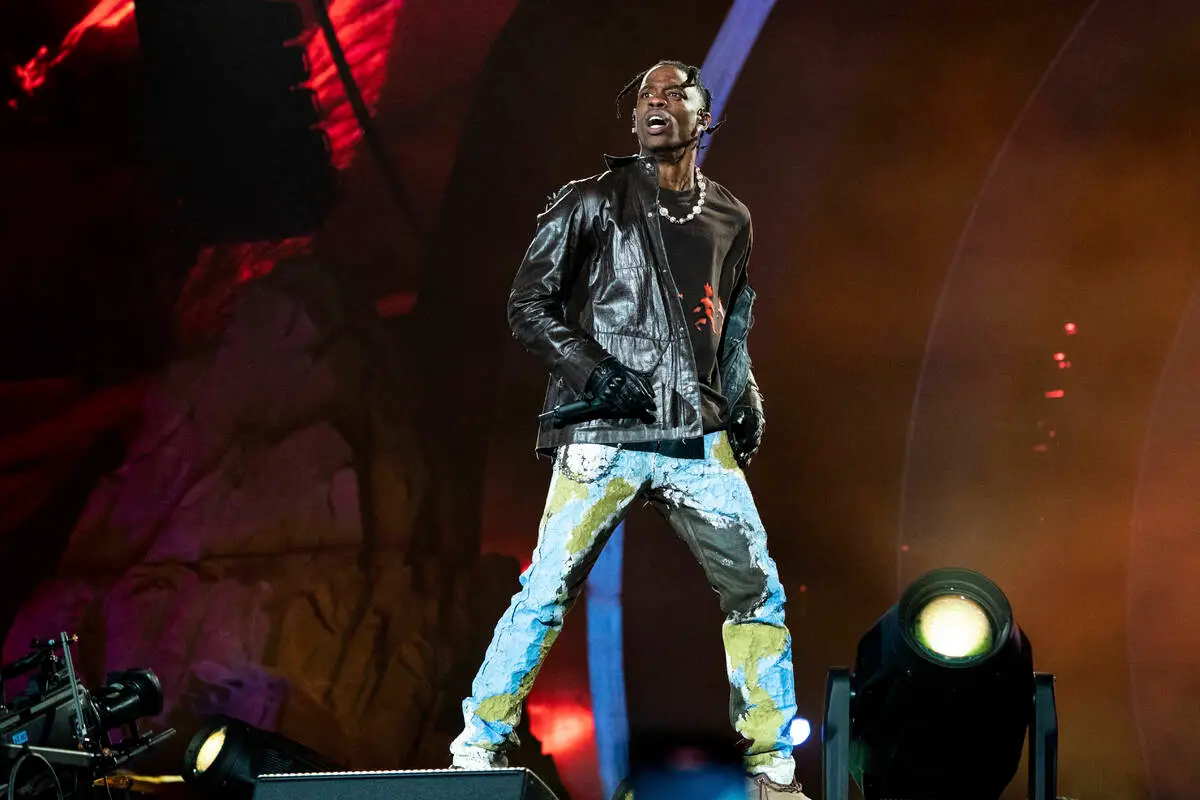
64. Monument Valley
The dramatic landscapes of Monument Valley, with towering rock formations and vast open spaces, inspire the epic scope and monumental design of Astroworld. This natural wonder emphasizes scale and a connection to land, which resonates with Scott’s Texas roots.
65. Vincent van Gogh’s Starry Night
Van Gogh’s swirling skies in Starry Night reflect the slightly chaotic, dreamlike feel of Astroworld. The rich colors and fluid movement in the sky echo the surreal energy on the album cover.
66. Anime Carnival Festivals
Carnivals in Japanese anime often depict vibrant lights, cultural symbols, and surreal elements. The aesthetic and energy of these fictional festivals echo the colorful, animated environment seen on the Astroworld cover.
67. Disneyland’s Sleeping Beauty Castle
The grandeur and whimsy of Disneyland’s Sleeping Beauty Castle influenced the Astroworld carnival, symbolizing a gateway to a magical realm. This iconic structure’s blend of fantasy and nostalgia resonates with Scott’s album theme.
68. Circus Clowns and Performers
Clowns, fire-breathers, and circus performers on the cover reflect classic carnival acts. They embody the playful yet slightly eerie vibes of a traditional circus, adding a layer of spectacle to the Astroworld universe.
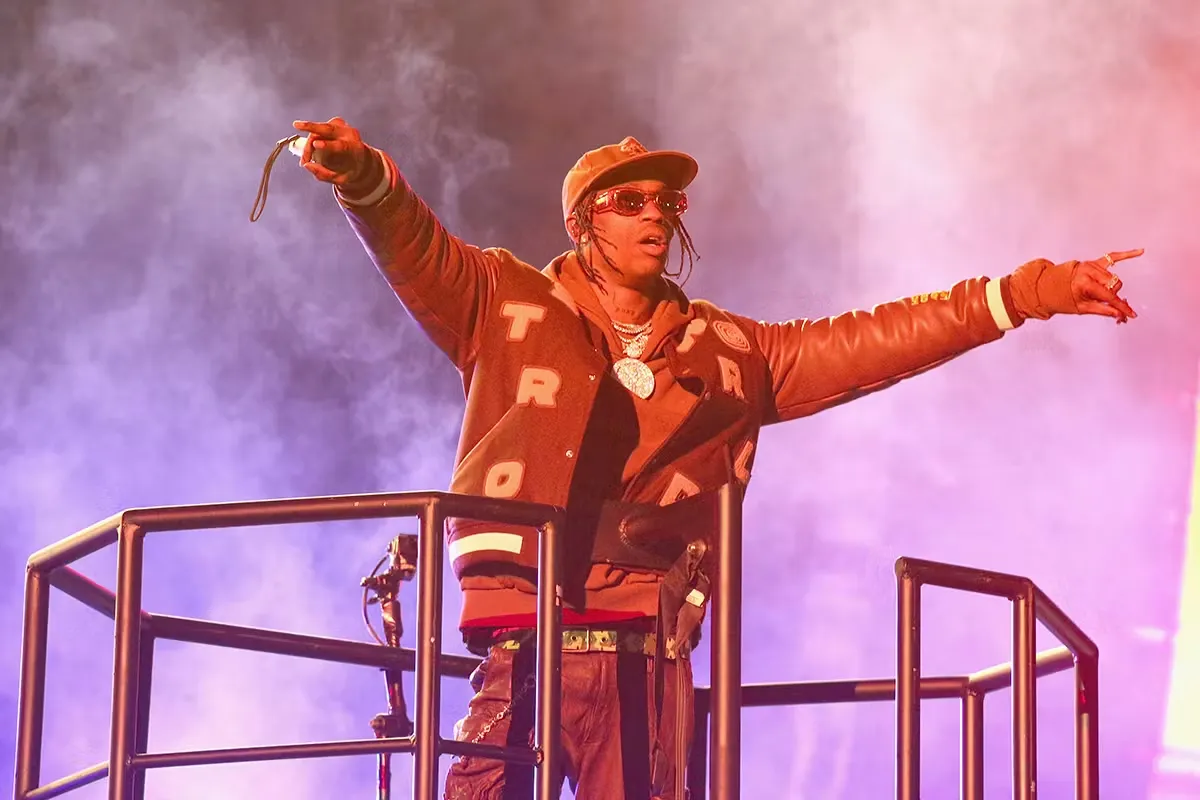
69. Spirited Away’s Bathhouse
The fantastical bathhouse in Spirited Away, filled with bizarre creatures and vibrant colors, inspires the eclectic carnival atmosphere of Astroworld. The mix of characters and settings recalls the surreal energy of this animated classic.
70. The Lincoln Memorial
The monumental design of the Lincoln Memorial, a symbol of reverence and awe, is paralleled by the large head at the entrance of Astroworld. The cover’s entrance acts as a focal point, drawing visitors into Scott’s world.
71. Tim Burton’s Beetlejuice
The surreal, exaggerated visuals in Beetlejuice are echoed in the slightly twisted, funhouse vibe of Astroworld. The strange characters and whimsical setting parallel Burton’s playful, dark vision.
72. Fantasy Novels and Book Covers
Fantasy book covers, especially from the 80s and 90s, often portrayed surreal landscapes filled with mystical creatures. The cover’s carnival world draws from these visuals, creating an epic, otherworldly experience.
73. Children’s Storybooks
The whimsical, colorful illustrations of classic storybooks inspire the playful yet surreal elements on the cover. Storybooks often blend innocence with fantasy, mirroring the way Astroworld portrays a carnival of dreams.
74. Andy Warhol’s Pop Art
Warhol’s pop art, which explored icons and celebrity culture, influences the bold color choices on the cover. Warhol’s style resonates with the album cover’s pop surrealism, blending high art with popular culture.
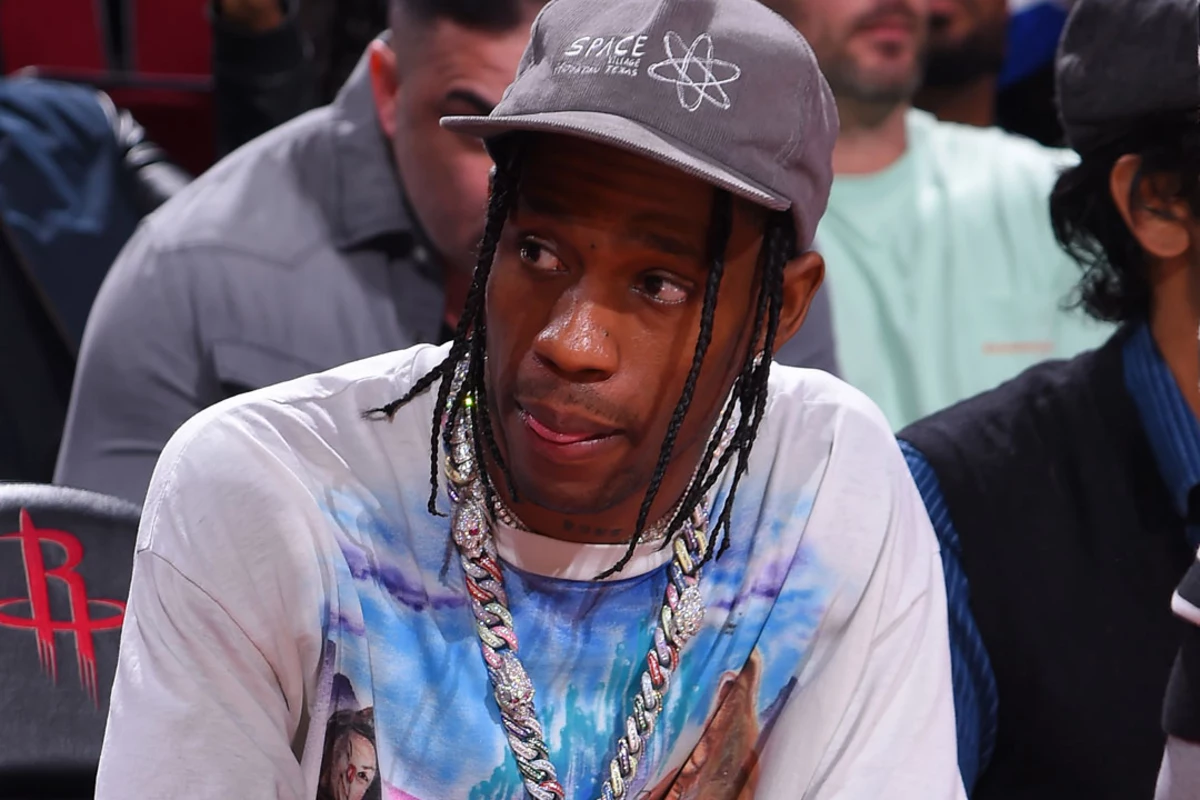
75. NASA’s Space Imagery
The space-like, cosmic vibe of the cover is influenced by NASA imagery, connecting Astroworld to Scott’s fascination with the unknown. The expansive setting evokes a sense of boundlessness, as if it’s a carnival floating in space.
76. The Matrix Movie
The Matrix introduced a reality-bending world, influencing Astroworld’s surreal carnival where dreams and reality merge. The concept of “entering another realm” aligns with the immersive experience Scott aims to create.
77. Neon Signage
Neon signage, particularly the vibrant and often quirky signs of 80s American highways, influences the intense color scheme and carnival lights. These signs create a visually captivating atmosphere, drawing people in from a distance.
78. Sanrio Characters
The colorful, cartoon-like nature of Sanrio characters adds a layer of innocence and playfulness to Astroworld’s aesthetic. The influence of exaggerated, friendly characters contributes to the album cover’s surreal charm.
79. Street Festivals
Street festivals, with their bright lights, food stands, and diverse crowds, inspired the bustling, vibrant carnival scene. The cover’s setting resembles a lively festival that blends cultures, characters, and activities.
80. Classic Monster Movies
The cover’s slightly eerie, larger-than-life atmosphere reflects the vibes of classic monster movies. The sense of curiosity and mystery adds a layer of suspense to Astroworld’s fantastical world.
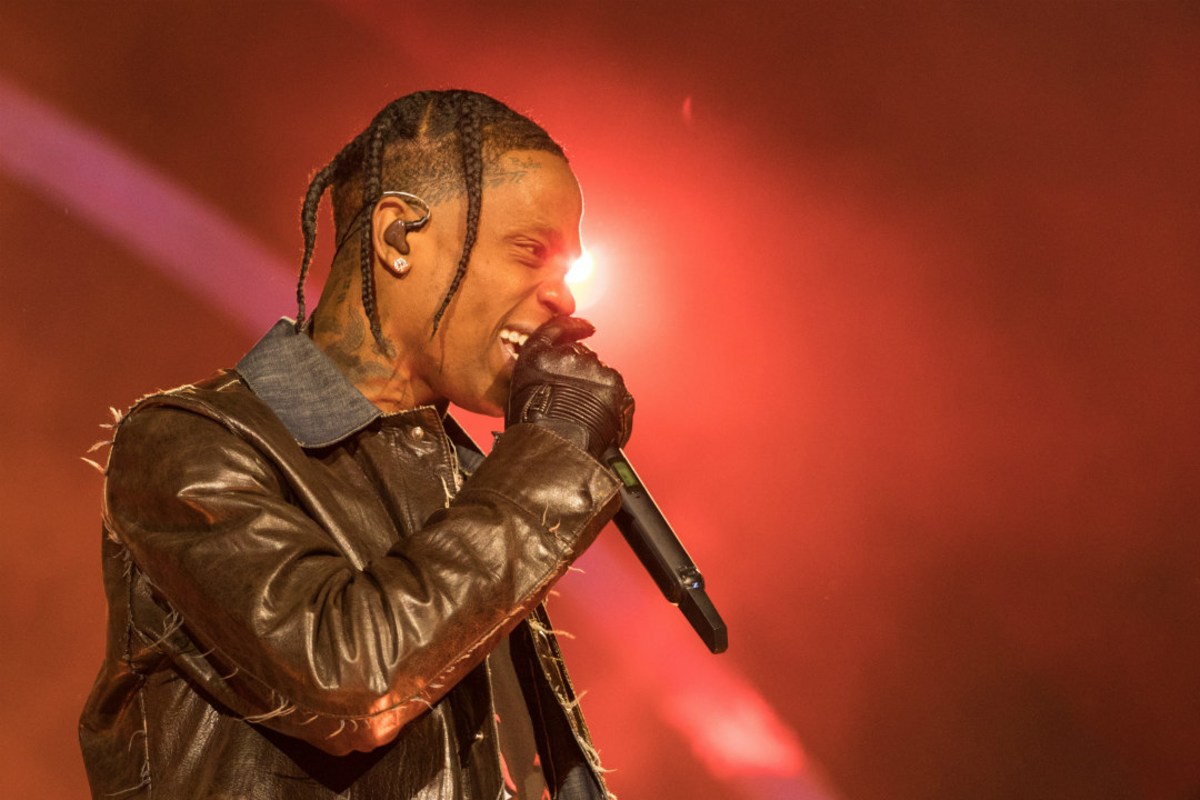
81. The Great Gatsby’s Extravagance
The extravagant, over-the-top feel of The Great Gatsby aligns with the lavish, opulent carnival of Astroworld. This connection underscores themes of escapism and the allure of grand experiences.
82. Futuristic Theme Parks
The futuristic design of theme parks like Tokyo DisneySea and other sci-fi attractions influence the surreal, expansive quality of Astroworld. The concept of a high-tech, thrilling experience merges fantasy with reality.
83. Comic Books and Graphic Novels
The bold, dynamic visuals and surreal characters of comic books influence the cover’s design. The colorful, action-packed aesthetic brings a comic book-like quality to the surreal carnival.
84. Movie Poster Art
The layout and color scheme of classic movie posters inspire Astroworld’s eye-catching design. The cover combines different elements, creating a visual narrative much like a cinematic poster.
85. Texas Rodeo Imagery
The carnival draws inspiration from the vibrant, larger-than-life displays seen at Texas rodeos. The rodeo’s energetic atmosphere and sense of spectacle resonate with the cover’s celebratory spirit
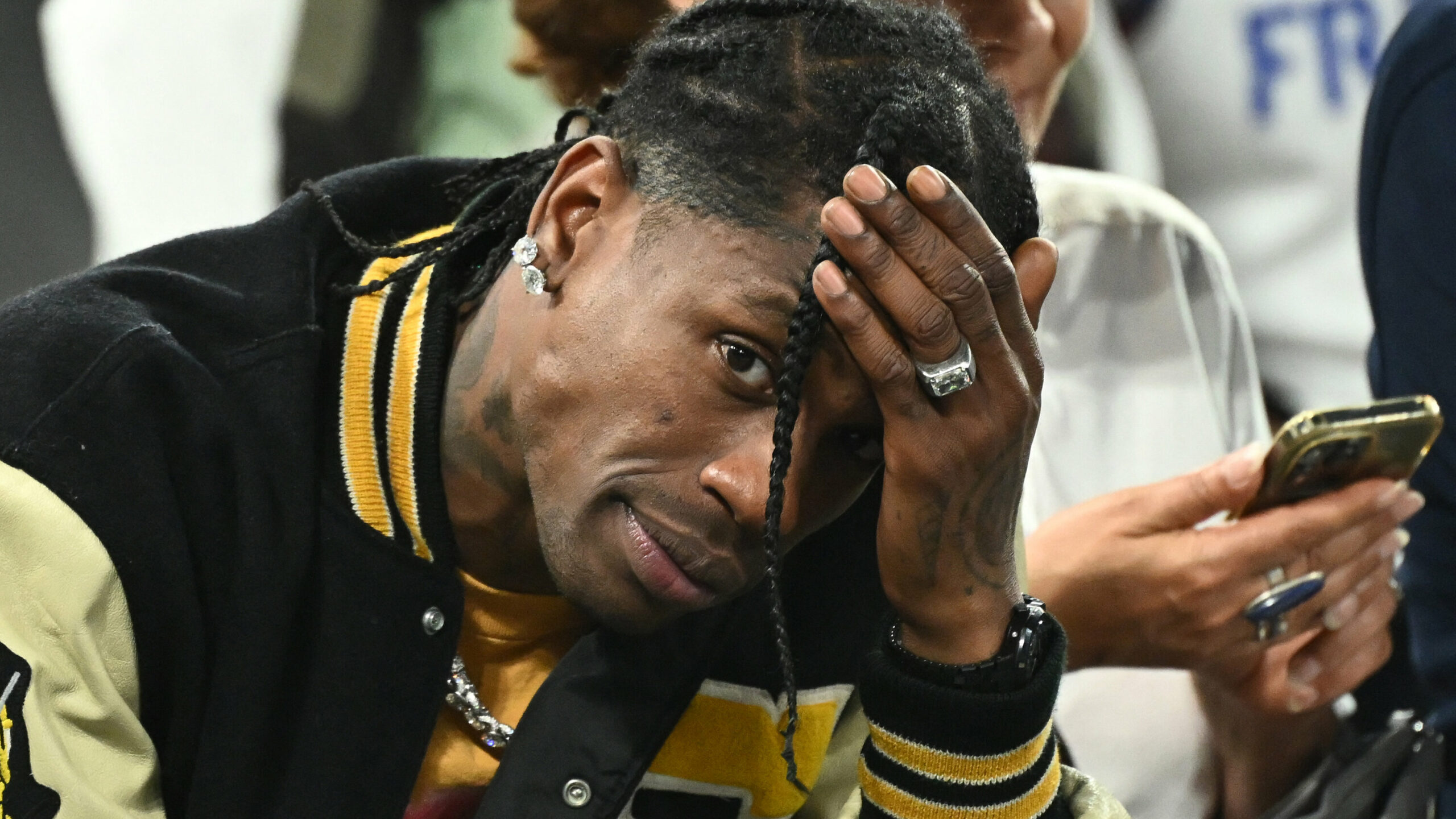
Travis Scott’s Astroworld album cover is more than just a visual representation of his music; it’s an intricate piece of art that invites viewers into an extraordinary world, carefully crafted from a diverse tapestry of cultural, artistic, and personal influences. The design, crafted by the visionary photographer David LaChapelle, layers elements from surrealism, pop culture, classic amusement park imagery, and architectural grandeur, creating a surreal and captivating carnival that’s emblematic of Scott’s unique soundscape.
The giant inflatable of Scott’s head acts as a portal, merging reality and fantasy in a way that mirrors the album’s journey through themes of nostalgia, escapism, and dreamlike experiences. Each element of the cover art—whether a nod to iconic amusement parks like Houston’s Six Flags Astroworld or to the surrealist masterpieces of Salvador Dalí—serves a purpose in building a visual world that feels both familiar and bizarre, captivating audiences on multiple levels. By incorporating elements as varied as Egyptian monuments, Japanese anime, iconic landmarks, and 80s neon aesthetic, the cover art becomes a bridge between the past and the future, evoking a sense of longing for a lost amusement park while simultaneously offering a futuristic carnival of sound and imagery.
